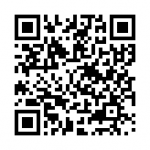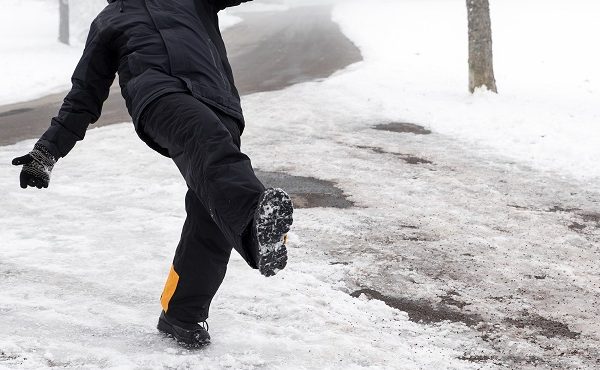Highlights from this week
- Understanding the Causes of Responsive Behaviours
- Annual Mandatory Policy Attestation
- Safe Footwear
- Take our Footwear Policy Poll!
- Discount Winter Wear
- Workplace Violence and Harassment Training
- E-learning: Prevent Slips, Trips, and Falls
- Mask Fit and CPR Sessions
- High Fives
- Ask Us Anything
Understanding the Causes of Responsive Behaviours

Responsive behaviours can be challenging for caregivers, but it is important to remember that they are often a way for individuals with dementia to express discomfort, confusion, or unmet needs – especially when they can no longer communicate verbally.
Recognizing these behaviours as forms of communication can help us respond with empathy and reduce the risk of Workplace Violence and Harassment (WVH).
What Causes Responsive Behaviours?
Brain Changes (The Disease Itself)
Dementia damages specific areas of the brain responsible for memory, language, and decision-making. This can lead to changes in behaviour that reflect:
- Confusion about surroundings
- Difficulty following conversations or instructions
- Frustration or agitation due to memory loss
Lost Communication Skills
As dementia progresses, the ability to verbally express basic needs diminishes. When someone cannot ask for food, water, rest, or the bathroom, they may express their needs through agitation, pacing, or vocal outbursts.
Physical Discomfort and Pain
If a person with dementia cannot verbally express pain, they may communicate through responsive behaviours such as:
- Restlessness
- Refusing to sit still or eat
- Increased aggression
Pain might stem from chronic conditions (like arthritis) or acute issues (such as a fall or injury). Treating underlying pain often reduces responsive behaviours.
Depression, Delusions, and Delirium
Mental health changes are common and may present as:
- Depression – Withdrawal, fatigue, or irritability
- Delusions – False beliefs (e.g., thinking their food is poisoned)
- Delirium – Intense confusion episodes, often triggered by infections or medications
These experiences can lead to refusal of care, suspicion, or anxiety.
Difficulty Understanding the Environment
A person with dementia may:
- Get lost in familiar places
- Forget how to use common objects
- Misinterpret sounds and sights
Changes in vision, hearing, and other senses can increase anxiety or fear, causing protective behaviours like withdrawing, shouting, or pushing others away.
Inability to Perform or Understand Tasks
Simple tasks can become overwhelming. Feeling rushed, overstimulated, or bored may lead to frustration or non-cooperation. For example:
- Pushing away caregivers
- Refusing help with dressing or eating
- Physical aggression out of frustration
Understanding what causes these behaviours can help prevent them! Addressing the underlying causes of responsive behaviours will not only minimize the risk of violence and injury to you, it will also help your client to feel safe by addressing their needs and providing reassurance that you are there to help.
Ready to learn more? Complete your Workplace Violence and Harassment training today!
Reminders and Announcements
Annual Mandatory Policy Attestation

Annual Policy Attestations are due by 28 February 2025 for all Circle of Care staff.
PSWs will be paid for 15 minutes of ‘training’ for completing the form. This will appear on your paystub after the deadline.
You can complete the form online by clicking on this link: https://psw.circleofcare.com/index.php/2025/01/07/policy-attestations/
You can also access the form using the QR Code below.

Health and Safety
Safe Footwear

Your health and safety matters!
One of the easiest ways to stay safe while working is to wear the right footwear. Whether you’re in a client’s home, driving, or walking in the community, having the correct shoes can help prevent slips, trips, and falls (STFs).
Proper footwear protects you from:
- Slipping on wet or icy floors
- Stepping on sharp objects
- Foot fatigue or strain from long hours of standing or walking
What to look for:
- Soles: Flat, soft rubber soles – these provide the best slip resistance.
- Shoes: Must be closed-toe with a solid upper.
- Fit: Shoes should fit well, be comfortable, and provide proper support.
- Condition: Keep shoes clean, in good repair, and sturdy.
What NOT to wear:
- Sandals or open-toe shoes
- Heels or dress shoes
- Shoes with holes or other damage
Winter weather requires extra care
For extreme weather or wet conditions:
- Choose boots with thermal polyurethane soles for warmth and slip-resistance.
- Consider ice cleats or boots with insulating liners during snow and icy conditions.
- Always have an indoor pair of shoes to switch into when entering client homes.
Wellness at Work
Discount Winter Wear

Did you know?
You can get discounts on winter clothing and boots through our discount program, Perkopolis!
Learning in Action
Reminder: Mandatory Workplace Violence and Harassment Training

Circle of Care is committed to preventing workplace violence and harassment and ensuring a safe environment for all employees.
All employees are required to complete the mandatory Workplace Violence and Harassment e-learning module in Dayforce by February 5, 2025.
All employees that complete the training will receive 30 minutes of paid training time, which will be paid out in March.
E-Learning: Prevent Slips, Trips, and Falls

Stay safe at work!
If you did not complete the STF Prevention eLearning module in 2023 – or you just need to refresh your memory – it’s not too late to self-enroll through Dayforce.
Log into your Dayforce account, select the ‘Learning’ tab and then choose the STF Prevention module from the ‘Courses Catalogue’ at the top.
Upcoming CPR Sessions on January 22

Have you had your mask fit tested and CPR training? Circle of Care requires all PSWs and Homemakers to be certified with valid and current CPR training and properly fitted for N95 masks.
Important reminders:
- Arrive 15 minutes before the CPR training or mask fit session begins.
- Try to book a date/time where you do not have client visits scheduled. If you need to make any scheduling arrangements after you have booked your session, speak to your Service Coordinator.
- Your schedule will be blocked as ‘unavailable’ for you to attend the session. You do not need to use your phone to sign into the training.
- You will be paid a total of 4 hours for the training (CPR) and 1 hour for mask fit. These hours will be added to your schedule and paid out 1-2 weeks after the session has been completed. They will appear on your paystub as ‘Miscellaneous’.
- Manage your bookings or cancellations through the online portal.
- You will receive a confirmation email/text notification when you book your session and a session reminder.
Book your CPR training and mask fit sessions through First Aid Care today!
You can also book by calling 905-272-9214
Community Corner
High Five!

Has someone gone above and beyond at work? Give them a High Five!
The High Five program lets you publicly recognize staff members for their outstanding work. High Fives will be posted in your weekly Inside the Circle newsletter.
To give a high five, just click on the button below or use the link in the rotating banner on the Portal home page.
Please note: We do not accept anonymous submissions for this program. High Fives must be submitted by an individual person, whether they are a staff member or member of the community.
Ask Us Anything
It is so frustrating that every time I am on duty, I have to call my coordinator to add clients for me. They give an hour of work when I have 5 hours of availability.
We are sorry to hear your frustration with your schedule. Building a schedule can take some time, as service coordinators must balance client needs, travel distance, worker availability and time requests. If this is a recurring problem, we recommend you have a conversation with your service coordinator about your concerns.
Your system is the reason why I was not paid, and no one phoned me back when I complained. This morning I logged in and when I was about to log out, it turns out I was not logged in. I called for an override, and the person doubted that I was with the client.
We understand that this would be a frustrating scenario! You were right to reach out immediately. If you experience issues with your app, please also reach out to IT promptly for assistance. It is important that you also make your CSS/Service Coordinator aware of any issues with your phone/app to ensure your schedule is properly adjusted to prevent any pay loss.
Has our PSW roles now switched to home cleaning now?
There are certain light housekeeping-related tasks that Personal Support Workers may be asked to take on, in addition to their regular tasks assisting a client. These can include wiping down counters, washing dishes, or dusting. You should not be scrubbing floors or cleaning light fixtures. If you’re concerned about the tasks that your clients are requesting from you, and feel that they are beyond your scope of duties, please speak with your Client Services Supervisor, who can have a detailed discussion with the client and/or their family.
What will happen if I do not use my sick leave? It is converted to money?
Any unused sick time that is left over at the end of the calendar year will not be lost and will be banked. Banking means that these sick time hours are kept for you to use at a later date. Employees can bank a maximum of 200 hours as per the Collective Agreement.
We received a complaint on behalf of one of our call center staff.
The complaint has been forwarded to the supervisor of the team, who will review call logs and ensure any required training is implemented. If you have any concerns about the professionalism of any of the call center staff, you are always welcome to reach out to the Operations Supervisor, Alicia Cimini at ext.424.
Have a question? Submit your questions or feedback anonymously below!
Please note that it may take us longer to provide some answers. If your question hasn’t been answered yet, we will get back to you as soon as we can.

